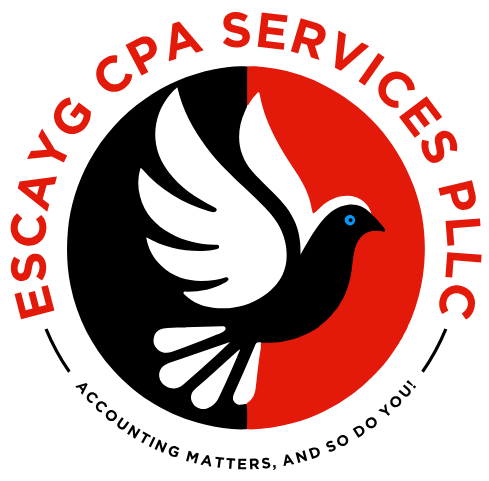
As a small business owner, navigating the complex world of taxes can be daunting. However, understanding and taking advantage of tax deductions can significantly reduce your tax burden and maximize your savings. From office expenses to travel costs, numerous deductions available to small business owners are often overlooked. This comprehensive guide will explore 10 essential tax deductions that every small business owner should know about.
1. Home Office Deduction
The home office deduction is particularly advantageous for entrepreneurs who operate their businesses from home. This deduction allows you to recoup a portion of your housing expenses, such as rent, mortgage interest, utilities, and maintenance costs, based on the percentage of your home used exclusively for business purposes. To claim this deduction, you must have a dedicated space in your home used solely for conducting business activities. This could be a separate room or a designated area within a room, such as a corner office or a studio space. Keep in mind that the IRS has specific criteria for what constitutes a qualifying home office, so it’s essential to familiarize yourself with these guidelines and maintain accurate records to support your claim.
2. Business Equipment and Supplies
Investing in necessary equipment and supplies is an inevitable aspect of running a small business. Whether you need computers, printers, furniture, or inventory, these expenses are generally deductible as long as they are used exclusively for business purposes. Be sure to differentiate between capital expenditures, typically depreciated over time, and supplies fully deductible in the year they are purchased. Keeping detailed records of your equipment purchases, including receipts, warranties, and depreciation schedules, will help ensure that you maximize your deductions while remaining compliant with IRS regulations.
3. Vehicle Expenses
If you use a vehicle for business purposes, you can deduct the costs associated with its operation and maintenance. This includes expenses such as gas, oil changes, repairs, insurance premiums, and even parking fees and tolls. You have the option to use either the standard mileage rate, which is calculated based on the number of business miles driven, or the actual expenses method, which involves tracking all vehicle-related expenses throughout the year. Whichever method you choose, it’s crucial to maintain thorough records, including mileage logs, receipts, and invoices, to substantiate your deduction claims in case of an IRS audit.
4. Travel and Meals
Business travel can encompass a wide range of expenses, including airfare, lodging, rental cars, and meals. These expenses are deductible if they are directly related to your business activities and incurred while away from your tax home, which is typically your primary place of business. Keep in mind that personal expenses, such as sightseeing or leisure activities, are not deductible, so it’s essential to separate business-related expenses from personal ones. Additionally, the IRS allows you to deduct 50% of the cost of meals incurred while traveling or entertaining clients, provided that they are not lavish or extravagant.
5. Health Insurance Premiums
Self-employed individuals can deduct 100% of their health insurance premiums for themselves, their spouses, and their dependents. This deduction is taken on the front page of your tax return, reducing your adjusted gross income and lowering your overall tax liability. It’s important to note that this deduction is available only to business owners who are not eligible to participate in an employer-sponsored health insurance plan, either through their own business or that of their spouse.
6. Retirement Contributions
Planning for retirement is crucial for small business owners, and contributing to a retirement plan helps you save for the future and provides immediate tax benefits. Depending on your retirement plan type, such as a SEP-IRA, SIMPLE IRA, or solo 401(k), contributions are generally tax-deductible up to certain limits. By taking advantage of these retirement savings options, you can lower your taxable income and defer taxes on your contributions and investment earnings until retirement.
7. Professional Services
Small business owners often rely on the expertise of professionals such as attorneys, accountants, consultants, and marketing specialists to help them navigate various aspects of their business. Fortunately, fees paid to these professionals are generally deductible as business expenses. Whether you’re seeking legal advice, tax planning services, or marketing assistance, these expenses can help reduce your taxable income and improve your bottom line. Be sure to retain documentation, such as invoices and contracts, to substantiate these deductions in case of an IRS audit.
8. Advertising and Marketing
Promoting your business through advertising and marketing efforts is essential for attracting customers and driving revenue growth. Fortunately, these expenses are tax-deductible, whether you’re investing in online ads, print media, social media marketing, or sponsoring events. By allocating a portion of your budget to advertising and marketing activities, you can enhance your brand visibility and reduce your tax liability by claiming these expenses as deductible business costs.
9. Education and Training
Investing in your professional development and that of your employees can yield significant long-term benefits for your business. Whether you’re attending workshops, seminars, courses, or conferences, continuing education and training expenses are generally deductible as long as they are directly related to your business activities. Additionally, you can deduct the costs of providing training to your employees to improve their skills and productivity, further enhancing the value of your workforce.
10. Bad Debts
Unfortunately, not all business transactions result in payment, and you may encounter situations where you are unable to collect debts owed to your business. In such cases, you may be able to deduct these uncollectible debts as a business bad debt. To qualify for this deduction, the debt must be considered partially or wholly worthless and must be written off during the tax year. While no business owner wants to experience bad debt, knowing that you can potentially recoup some of the losses through a tax deduction can provide a measure of relief.
Understanding and leveraging tax deductions can significantly reduce your small business’s tax liability and improve your financial position. By familiarizing yourself with these essential deductions and maintaining accurate records of your business expenses, you can maximize your tax savings while remaining compliant with IRS regulations. However, tax laws and regulations are subject to change, so it’s essential to consult with a qualified tax professional or accountant to ensure that you’re taking full advantage of all available deductions and optimizing your tax strategy for maximum benefit. With careful planning and proactive tax management, you can minimize your tax burden and keep more of your hard-earned money in your pocket.

